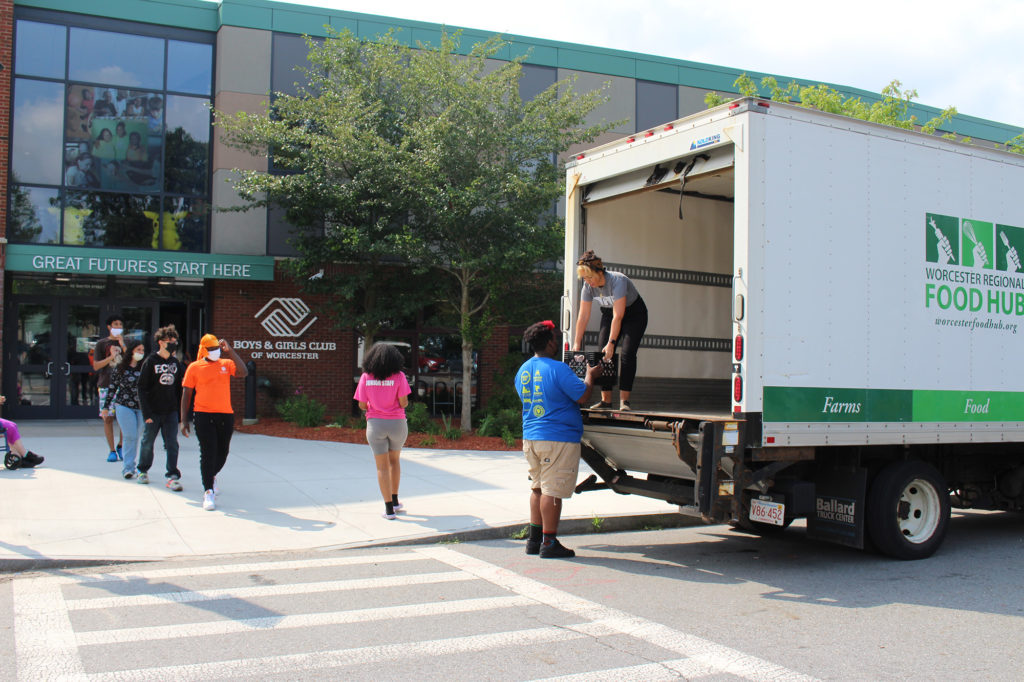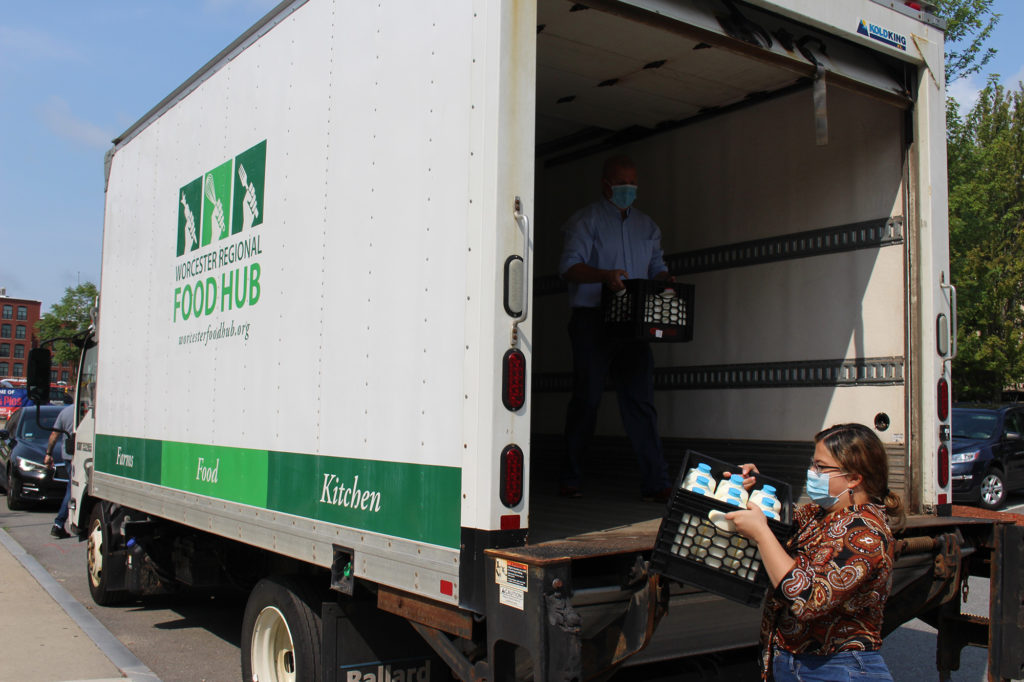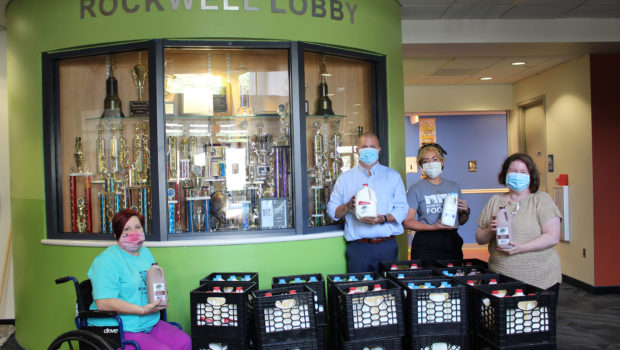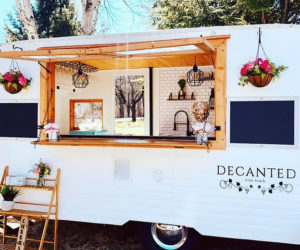The Worcester Regional Food Hub (WRFH) has just started a program to donate low- and non-fat milk to the Boys & Girls Club of Worcester. The donations will run every week for 20 weeks into December and is funded through a grant from the Massachusetts Department of Agricultural Resources’ Dairy Promotion Board.
On Thursday, July 29, WRFH Director Shon Rainford and Sales Operations Manager Sarah Bonner dropped off 73 half gallons and 50 whole gallons of regular and chocolate milk from Mapleline Farm. The farm, located in Hadley, already provides food for the Food Hub’s wholesale activities to local restaurants, hospitals, colleges, and other institutions in the region.
This is not the first partnership between the Food Hub – which is in a fiscal sponsorship agreement with the Worcester Regional Chamber of Commerce – and the Boys & Girls Club. During the height of the pandemic, the Food Hub donated hundreds of grocery boxes packed with locally sourced food to community organizations around the city, including the Boys & Girls Club.

Food Hub workers and volunteers unload milk off the truck at Worcester Boys & Girls Club. Photo by Rayana Petrone.
“We love partnering with the Food Hub because they believe in mutual aid,” said Boys & Girls Club Executive Director Liz Hamilton. “Sometimes our families have to make really tough choices about what they can spend at the grocery store, so making sure they have dairy products that are very healthy for their families is a huge difference.”
Hamilton noted that the children at the clubhouse had asked for chocolate milk, and the Food Hub delivered on that promise as well. Strawberry milk will be available in future donations. While seemingly trivial, the different flavors help encourage consumption of milk in youth from food insecure, low-income households where caloric and vitamin intake is lower than the average food secure household.
The Boys & Girls Club of Worcester serves about 8,000 youth aged 8 – 18 and their families. Many of these youth are at-risk and live in disadvantaged, low-income households in neighborhoods with systemic difficulties in accessing affordable, healthy food. The Boys & Girls Club is a significant community partner in the fight against food insecurity and operates a pantry for its member families. Through the pantry, families are eligible for free food, such as the milk from the Food Hub.
Mr. Rainford believes that community partnerships, like the one with the Boys & Girls Club, are essential in ensuring Worcester residents from all backgrounds have access to healthy food in affordable ways. “The Food Hub has worked with area organizations for the past several years with the goal of bringing healthy, affordable, local food to those that need it most,” he said, also noting partnerships with the Regional Environmental Council, Growing Places in Fitchburg, Woo Fridges, and others.
“Milk is such an important food for growing minds and bodies, and we are proud to work with Mapleline Farm out of Hadley to bring this fresh milk from their herd of Jersey cows to the Boys and Girls Club,” Mr. Rainford added.

Food Hub workers and volunteers unload milk off the truck at Worcester Boys & Girls Club. Photo by Rayana Petrone.
It is a busy year for the WRFH, which is planning on moving to Union Station in mid-2022 after a build-out of a lower space in the intermodal transportation hub. The Worcester Chamber has been working for the last year to raise the capital funds and policymaker support necessary, collaborating with the City of Worcester, Congressman Jim McGovern, and state legislators. The new facility will allow for six sub-kitchens for the shared commercial kitchen, a multipurpose event space for pop-up markets and other events, a lofted office space for WRFH staff, and room for shipping and cold storage.
The Union Station space may also contain a retail kiosk selling food from startup businesses that work in the Food Hub kitchen, as well as food directly from local farms.
Worcester Chamber and Food Hub staff recently presented the $3 million concept to the Worcester Redevelopment Authority, which expressed support for the Food Hub’s vision.
Building on its community partnerships, the Food Hub is running courses in Worcester State University’s entrepreneurship program at its shared commercial kitchen at Greendale People’s Church. Courses will begin in October and be open to Worcester State students as well as the community at large. The collaborative effort will seek to further incubate startup food businesses in Worcester.
David Sullivan is the Economic Development & Business Recruitment Associate at the Worcester Chamber. He can be reached by email here.
This story was originally published in the August 2021 edition of Chamber Exchange: The Newspaper, a quarterly publication of the Chamber. All newspaper editions are archived here.





